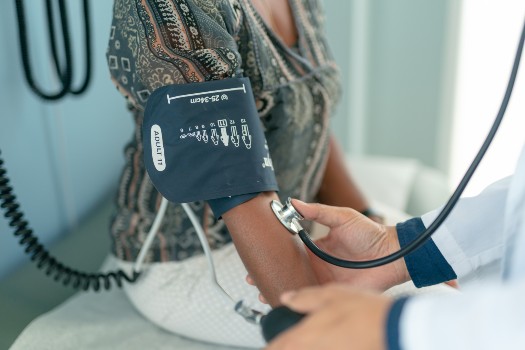BAME health checks should start at 25, says Government primary care adviser

The NHS Health Check programme should target people from ethnic minorities from age 25 in order to reduce health inequalities, a senior primary care adviser to the Government has said.
Professor Kamlesh Khunti, a current Department of Health and Social Care adviser and former lead on the NHS Diabetes Prevention Programme, was addressing MPs following the publication of Public Health England’s review into raised mortality of people from black, Asian and minority ethnic (BAME) backgrounds from Covid-19.
The review concluded that the pandemic had laid bare already existing health inequalities, with key recommendations including a strengthening of targeted programmes for chronic disease prevention.
In an evidence session with the House of Commons Women and Equalities Committee on Wednesday, Professor Khunti said bringing down the age for health checks for people from BAME backgrounds could mean earlier diagnosis of long-term conditions such as cardiovascular disease and diabetes, which are more prevalent in this cohort.
The University of Leicester primary care professor said that ‘primary prevention is key’ to mitigating coronavirus risks for BAME people and addressing health inequalities.
He said: ‘We need to ensure that people from BAME backgrounds are assessed regularly [for any risk factors].
‘We have an NHS health check which is for people aged 40 to 74, but I think for the BAME backgrounds because they get these conditions earlier, we should extend that to age 25 and onwards.’
Professor Khunti added that lockdown has caused ‘disruption’ in the GP management of patients with chronic diseases such as CVD, diabetes and hypertension, which disproportionately affect the BAME population.
He said: ‘Because these people haven’t had an assessment done – and this is not just the BAME population but it may affect BAME and deprived populations more – we need to ensure these people are seen early and the risk factors are controlled while we’re in lockdown, through remote consultations.’
Following lockdown, these people must be assessed and managed ‘more aggressively’ to ensure their risk factors are controlled, he added.
Speaking in the same evidence session, North London GP and BMA council chair Dr Chaand Nagpaul said the Government should have acted ‘much more rapidly’ to mitigate the disproportionate risk of coronavirus to BAME people.
He said: ‘I don’t think we had expectations to have all the answers immediately. [But] what I do think should have been done much more rapidly was to mitigate and take action quite early on to protect [BAME] healthcare professionals and key workers from further harm.’
He added: ‘This is an infectious disease, it is caught by being close to other people. It’s therefore obvious that if you’re a healthcare worker looking after patients who have got infection, you are at risk.
‘Action should have been taken much earlier to protect those healthcare workers and we know that didn’t happen.’
Providing risk assessments could have allowed people to be redeployed ‘at a much earlier stage’, while action should also have taken place on PPE to ensure frontline staff were adequately protected, Dr Nagpaul added.
He said: ‘There was a backdrop of the lack of protection on top of the lack of immediate action in risk assessment and redeployment of staff.’
Dr Nagpaul also added that the PHE report’s recommendation that ethnicity should be recorded on death certificates would be ‘helpful’.
However, he told the committee that death should not be ‘the only barometer’ but that more must be done to understand why BAME people disproportionately end up in hospital with coronavirus, whether or not they recover.
The first report from PHE’s rapid review, published 2 June, confirmed that BAME people have a higher Covid-19 death risk in the UK but faced criticism for being ‘a whitewash’ after it emerged that 69 pages of stakeholder recommendations were omitted.
The BMA has called for GP practices to get ‘urgent’ access to occupational health services to support Covid-19 risk assessments in practices after NHS England told practices they should risk-assess BAME staff ‘to consider if they should see patients face to face’.
Visit Pulse Reference for details on 140 symptoms, including easily searchable symptoms and categories, offering you a free platform to check symptoms and receive potential diagnoses during consultations.









